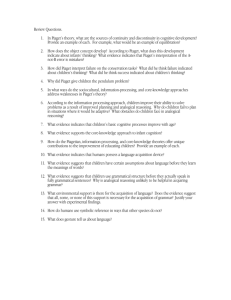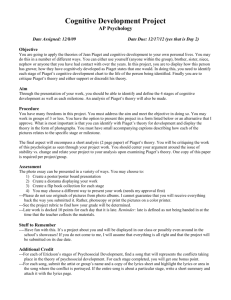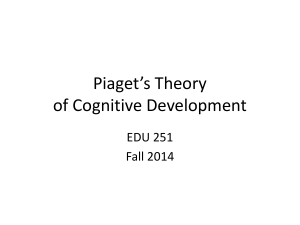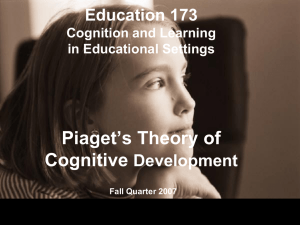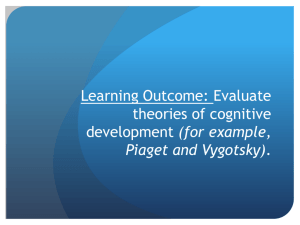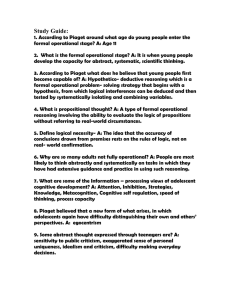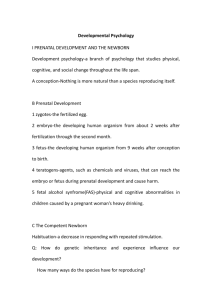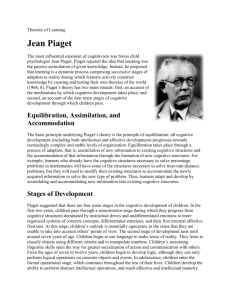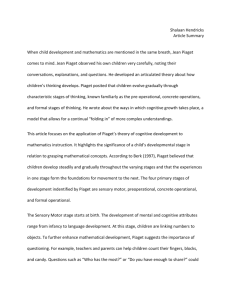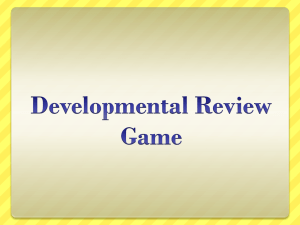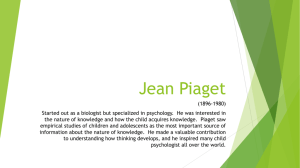Glossary of Key Terms
advertisement
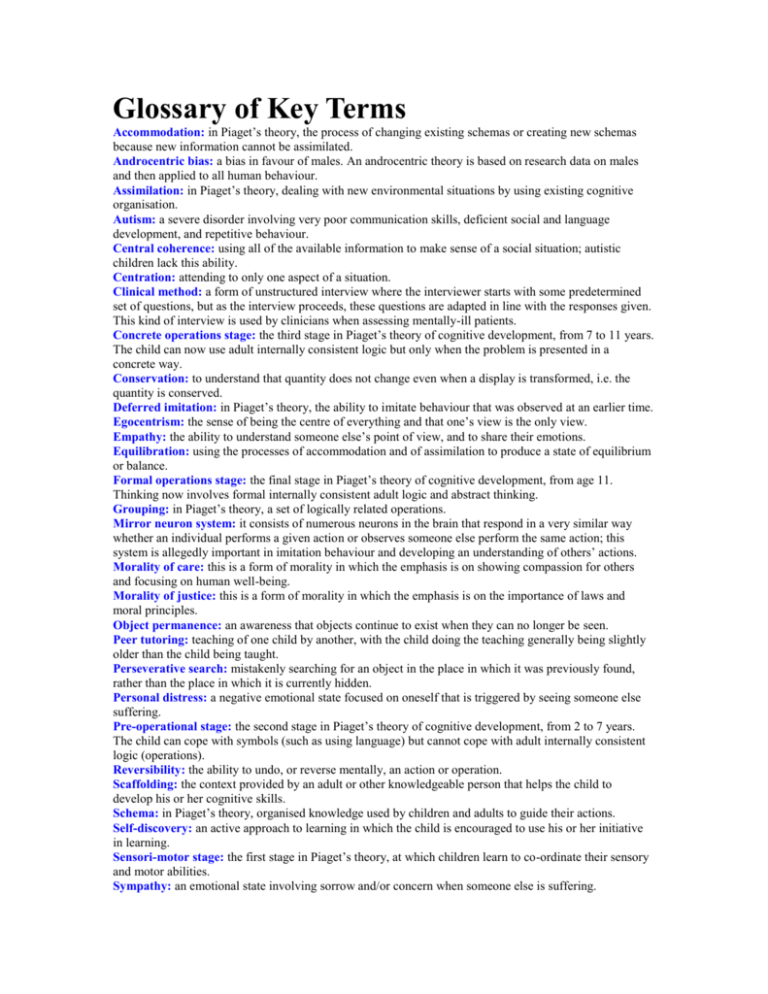
Glossary of Key Terms Accommodation: in Piaget’s theory, the process of changing existing schemas or creating new schemas because new information cannot be assimilated. Androcentric bias: a bias in favour of males. An androcentric theory is based on research data on males and then applied to all human behaviour. Assimilation: in Piaget’s theory, dealing with new environmental situations by using existing cognitive organisation. Autism: a severe disorder involving very poor communication skills, deficient social and language development, and repetitive behaviour. Central coherence: using all of the available information to make sense of a social situation; autistic children lack this ability. Centration: attending to only one aspect of a situation. Clinical method: a form of unstructured interview where the interviewer starts with some predetermined set of questions, but as the interview proceeds, these questions are adapted in line with the responses given. This kind of interview is used by clinicians when assessing mentally-ill patients. Concrete operations stage: the third stage in Piaget’s theory of cognitive development, from 7 to 11 years. The child can now use adult internally consistent logic but only when the problem is presented in a concrete way. Conservation: to understand that quantity does not change even when a display is transformed, i.e. the quantity is conserved. Deferred imitation: in Piaget’s theory, the ability to imitate behaviour that was observed at an earlier time. Egocentrism: the sense of being the centre of everything and that one’s view is the only view. Empathy: the ability to understand someone else’s point of view, and to share their emotions. Equilibration: using the processes of accommodation and of assimilation to produce a state of equilibrium or balance. Formal operations stage: the final stage in Piaget’s theory of cognitive development, from age 11. Thinking now involves formal internally consistent adult logic and abstract thinking. Grouping: in Piaget’s theory, a set of logically related operations. Mirror neuron system: it consists of numerous neurons in the brain that respond in a very similar way whether an individual performs a given action or observes someone else perform the same action; this system is allegedly important in imitation behaviour and developing an understanding of others’ actions. Morality of care: this is a form of morality in which the emphasis is on showing compassion for others and focusing on human well-being. Morality of justice: this is a form of morality in which the emphasis is on the importance of laws and moral principles. Object permanence: an awareness that objects continue to exist when they can no longer be seen. Peer tutoring: teaching of one child by another, with the child doing the teaching generally being slightly older than the child being taught. Perseverative search: mistakenly searching for an object in the place in which it was previously found, rather than the place in which it is currently hidden. Personal distress: a negative emotional state focused on oneself that is triggered by seeing someone else suffering. Pre-operational stage: the second stage in Piaget’s theory of cognitive development, from 2 to 7 years. The child can cope with symbols (such as using language) but cannot cope with adult internally consistent logic (operations). Reversibility: the ability to undo, or reverse mentally, an action or operation. Scaffolding: the context provided by an adult or other knowledgeable person that helps the child to develop his or her cognitive skills. Schema: in Piaget’s theory, organised knowledge used by children and adults to guide their actions. Self-discovery: an active approach to learning in which the child is encouraged to use his or her initiative in learning. Sensori-motor stage: the first stage in Piaget’s theory, at which children learn to co-ordinate their sensory and motor abilities. Sympathy: an emotional state involving sorrow and/or concern when someone else is suffering. Theory of Mind: having an understanding that others’ thoughts and emotions are different from one’s own. Transitivity: understanding the relation between elements, for example, if x is greater than y and y is greater than z, then x is greater than z. Tutorial training: a traditional approach in which the teacher imparts knowledge to fairly passive students. Zone of proximal development: in Vygotsky’s theory, capacities that are being developed but are not as yet functioning fully.
